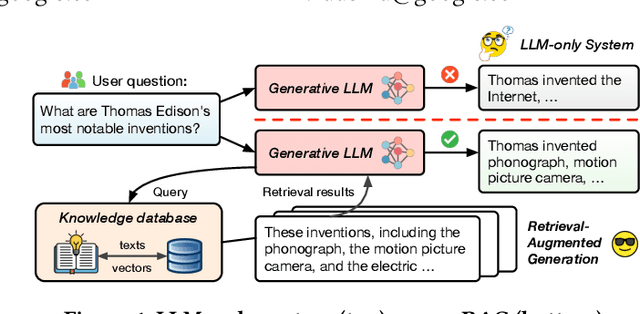Cat Graves
RAGO: Systematic Performance Optimization for Retrieval-Augmented Generation Serving
Mar 21, 2025



Abstract:Retrieval-augmented generation (RAG), which combines large language models (LLMs) with retrievals from external knowledge databases, is emerging as a popular approach for reliable LLM serving. However, efficient RAG serving remains an open challenge due to the rapid emergence of many RAG variants and the substantial differences in workload characteristics across them. In this paper, we make three fundamental contributions to advancing RAG serving. First, we introduce RAGSchema, a structured abstraction that captures the wide range of RAG algorithms, serving as a foundation for performance optimization. Second, we analyze several representative RAG workloads with distinct RAGSchema, revealing significant performance variability across these workloads. Third, to address this variability and meet diverse performance requirements, we propose RAGO (Retrieval-Augmented Generation Optimizer), a system optimization framework for efficient RAG serving. Our evaluation shows that RAGO achieves up to a 2x increase in QPS per chip and a 55% reduction in time-to-first-token latency compared to RAG systems built on LLM-system extensions.
 Add to Chrome
Add to Chrome Add to Firefox
Add to Firefox Add to Edge
Add to Edge